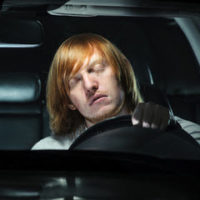Drug Recognition Experts in Delaware Drugged Driving Cases

St. Patrick’s Day brings many Delaware revelers out to celebrate and drink green beer, and this year’s celebration brought the familiar advance warning about DUI checkpoints: Delaware Online announced in a March 12, 2018 article that checkpoints would be set up in New Castle, Kent, and Sussex Counties for the entire holiday weekend. The “Border to Border” initiative partners Delaware, Virginia, and Maryland law enforcement agencies to discourage partyers from drinking and driving – and apprehend those that do.
The strategy dates back to 2012, but officials are going a step further to keep the roads safe this year: There will be a Drug Recognition Expert (DRE) at all checkpoints to assess whether a motorist is under the influence of drugs. The stakes are higher for Delaware drugged driving cases involving a DRE, so it is important to know the role these specialists play.
Drug Recognition Experts and Certification
A DRE is a law enforcement officer that is specially trained to assess and identify impairment by drivers who are under the influence of drugs. These experts are certified under a program developed by the National Highway Traffic Safety Administration (NHTSA), so they are able to recognize the perceivable effects that drugs have on a person’s body. The DRE program is intended to apprehend people who are drugged driving and impaired, under circumstances where a roadside chemical test would not reveal the presence of alcohol.
In addition to police officers who use their DRE certification and skills during checkpoints, the program also trains the prosecutors on the procedural rules and admissibility of evidence in trial situations. Together, law enforcement and prosecuting attorney are a tough team when it comes to fighting the charges of drugged driving.
Steps of the Drug Influence Evaluation (DIE)
DREs go through a 12-step checklist to determine what classification of drugs is causing impairment for a motorist. Through the DIE, an expert can identify several types of controlled substances, including marijuana, opiates, narcotics, and others.
For example, these experts may:
- Talk to the officer who pulled you over or stopped you at the checkpoint;
- Conduct a preliminary physical examination, including an eye exam;
- Check your ability to stay focused and not be distracted by divided attention;
- Review your vital signs;
- Examine your muscle tone and reflexes;
- Consider your own statements;
- Observe your responses and reactions to surrounding circumstances; and,
- Check for syringe marks indicating injectable drugs.
At the conclusion of the DIE, the DRE may request to take a urine, blood, or saliva sample if he or she suspects the presence of drugs. These materials are sent to a toxicology lab for analysis, and the results can be used in court if you are charged with driving under the influence of drugs.
Get Legal Help from an Experienced Delaware Drugged Driving Defense Attorney
A DRE can have a huge impact if you are stopped for driving under the influence of drugs and at your trial, so it is critical to retain a skilled criminal defense lawyer to represent you. For more information on options to defend against drugged driving charges, please contact Attorney Michael W. Modica in Wilmington, DE.
Resource:
delawareonline.com/story/news/local/2018/03/12/dui-checkpoints-coming-new-castle-kent-sussex-city-near-you-st-patricks-day-weekend/416574002/
